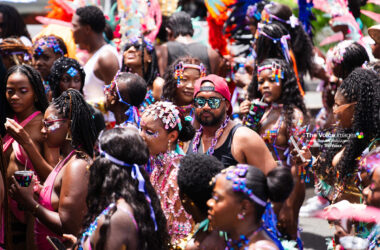Barbados, our easterly neighbour, on Tuesday of this week removed Queen Elizabeth of Great Britain as its head of state and in so doing became the newest country in the world to become a republic.
What Barbados has done in a nutshell was to transition from a head of state that was not elected by Barbadians to one that is elected by Barbadians, and in the process created a form of government known as a republic, which in essence is a form of government in which a state is ruled by representatives of the citizen body, since citizens do not govern the state themselves but through representatives.
Why a country is called a republic originated from Rome when in 509 BC, the Romans overthrew the Roman Kingdom and established a republic, a government in which citizens elected representatives to rule on their behalf. … The word republic comes from the Latin words res publica, meaning a “public thing”.
Dame Sandra Mason was sworn in as Barbados’ head of state and unlike other republics, such as the United States of America, whose head of state (President Joe Biden) is an executive position, Dame Sandra’s will be simply ceremonial. She will serve a four-year term as president.
Barbados’ journey to becoming a republic has been a long one and really began when in 1979, the Cox Commission was set up to examine the feasibility of Barbados becoming a republic. At that time, the Commission concluded that citizens wanted the then present system to remain.
In loosening its ties with Britain the island has dropped a critical vestige of colonialism, meaning the Queen as its head. However, there are questions as to whether it can completely erase all vestiges of Britain since, throughout its 55 years of Independence, and even well before that, it has been referred to as Little England, sometimes pejoratively and sometimes as a compliment?
Academic Natalie J Walthurst-Jones noted in an article in The Independent that “There is a preponderance of British culture here,” referring to Barbados.
“We are seen as so British from our language, educational system, systems of government and governance, the judiciary, common law and conventions, architecture, to the symbols, namely the roads, schools, institutions and the hospital: Queen Elizabeth Hospital.
“They stamped their presence on the island and reinforced that ‘the sun does not set on the British empire’. Most of the symbols remain.”
The big question is: Now that Barbados has gone and severed ties with Britain and now looks forward to shaping its future entirely on its own, will Saint Lucia see the need to do likewise?
The question is not pre-mature as there have been talks here about moving the way of a republic. However, those talks have not been held on a serious level, meaning that there have not been public discussion, referenda, etc. on the subject.
But could the move by Barbados reignite the discussion in Saint Lucia to a point where serious consideration can be given to it?
And most importantly, what are the constitutional mechanisms required if Saint Lucia wants to become a republic?
Then there is the other side of the coin to consider. Will it be in Saint Lucia’s interest to remain a monarchial democracy rather than go the way of a republic? What, fundamentally, will be the effect on our lives if we transition to a republic?
There is a growing discussion in Caribbean academia as to whether the move by Barbados will be a tipping point for other countries in the region which still linger on the premises of the British monarchy.
Whichever way the discussion goes as it pertains to Saint Lucia, it must be an article of faith that those leading the deliberations present all sides of the subject to Saint Lucians. What we don’t want is to be presented with a package, beautifully wrapped, but containing something totally different to the expectations of Saint Lucians.













